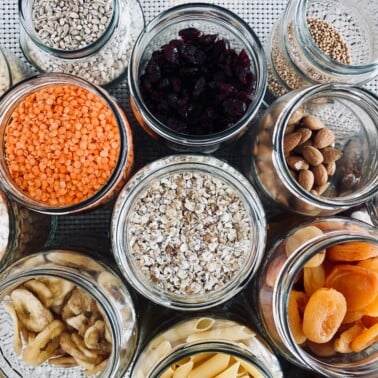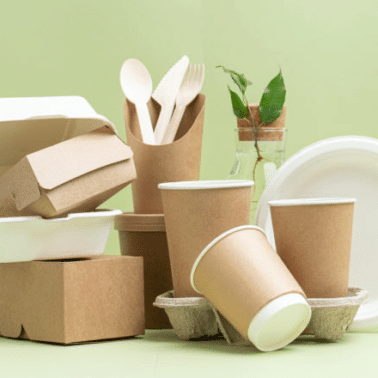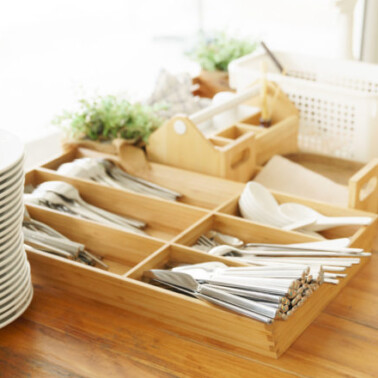Why do we need the 7 Rs of Sustainability?
Due to a massive publicity movement a few decades ago, Americans have ‘RECYCLE’ as the biggest best ‘R’ word in their minds. Many of us have the three ‘R’s – reduce, reuse, recycle – and can spit it out quickly, but don’t actually pay much attention to the first two: reduce and reuse. As if that’s not enough, there are actually at least 4 more Rs to pay attention to!
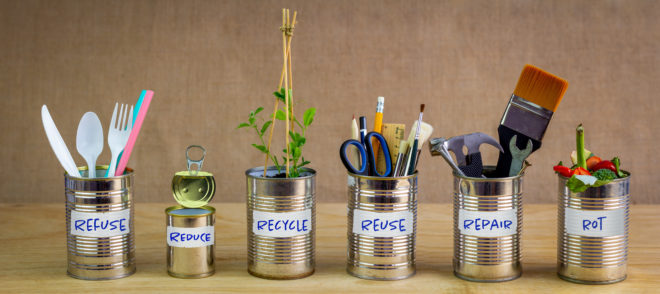
The 7 Rs of Sustainability
If you’ve ever seen The Story of Stuff, you know that we’ve created quite a bit of stuff in the last hundred or so years that’s largely not reusable or recyclable, and beyond that just not designed to be used long term. Single use, or short term use has become the norm in just a couple of generations. Though we often use the phrase “throwing this away”, away is still a place. Things we put in our garbage do go “away”, but it’s to a landfill, or in the case of plastics and textiles, often to another country, where the people who live there are dealing with our waste. Sustainability starts in our homes with the decisions we make both with items we decide to bring into our homes, and the decisions we make with what to do with those items when they’ve exhausted their life span, or we personally don’t have use for them anymore. What can we do to be more sustainable? I’m glad you asked!
Refuse
A fave of mine that feels uncomfortable to many folks is refuse. For some reason, saying no to the dental hygienist as they hand you the little plastic baggie of floss, travel toothpaste, and plastic toothbrush feels SCARY. Isn’t it just easier to say nothing and take the baggie home? Do you USE the stuff in there? Really? Or does it sit in your bathroom until you clean out your drawers every 5 years and THEN you toss it all in the trash? If you don’t have a need for the baggie of stuff, I challenge you to say, “oh thanks, but I’m good today!” You can say the same thing to someone offering yet another canvas tote, a free koozie (don’t you have plenty?), even paper flyers you know you don’t care about, or “free” things that come with kids meals if you know for sure it’s destined for the trash in less than 5 minutes.
Reduce
‘Reduce’ is an unpopular R word in today’s consumer focused, one-click shopping, same-day delivery world. Reducing can mean using less or being more intentional about having a plan for every purchase we bring into our home, especially reducing food waste. This one is really just a check on overall consumption – reducing unneeded purchases and items heading to landfill.
Repurpose
My kids are GREAT at repurposing items otherwise destined for the landfill into play swimming pools for dolls and crafts. An easy repurpose is a jar. Jars are just the best. They can be used for everything from storing tiny objects to a drinking vessel. What could you use those mis-matched socks for before sending them to be recycled? Puppets, baseboard dusters, cut into strips and use to tie hair back?
Reuse
Our grandmas were GREAT at reusing their Cool Whip containers and cookie tins to store leftovers and sewing supplies. My mom rips apart my dad’s holey tees to turn into rags and they are the BEST for cleaning windows and home car washes.
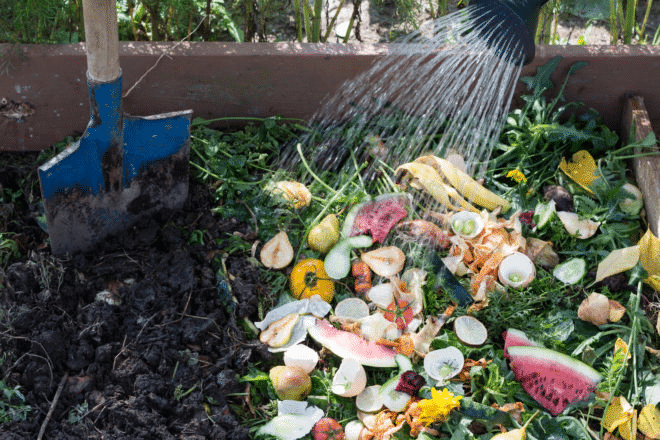
Rot
Rot is an R that is underused and maybe misunderstood? Compost can seem like a big undertaking, but it’s really simple! Many municipalities now have curbside compost services in addition to recycling, and some cities have third party compost services. If not, or if you prefer not to pay someone to take your food scraps, composting can be as easy as a hole, or small pile you create in your backyard. Simply add leaves, grass clippings, and non-dairy / non-meat kitchen scraps! Ours is mostly egg shells, coffee grounds, fruit peels, leaves, and veggie ends.
Recycle
I know you’ve been waiting for the one that makes us feel the best about all the packaging we bring into our homes – recycling. Unfortunately, less than 10% of all plastic ever created has been recycled. The recycling process for plastics is burdensome at best and toxic/energy inefficient at worst.
Another downside of plastic recycling is that in the event that your plastic drink bottle does get recycled, it loses integrity and is usually “downcycled” into something like synthetic fabrics in active wear, shoes, or plastic construction materials like playgrounds. Then likely tossed to the landfill after that.
The good news: we can infinitely recycle metals and glass. It’s actually more energy efficient to recycle these materials than to create new cans and jars, so always recycle these materials if you can! And of course last, but not least, paper! Paper has a limited lifespan like plastic. It can usually only be recycled 5-7 times maximum. The good news with paper recycling is that unlike plastic whose end of life is always landfill, paper can safely be composted and breakdown into organic compounds again!
Rethink
Do you have a favorite ‘R’ word? I’d challenge you to take a couple of minutes right now rethinking how your household disposes of any items you don’t have use for anymore. Here’s some bonus words: resell, rethink, repair, replant, respect, restore, responsibility. Is there a baby (or big) step you can make soon to continue on your sustainability journey?
Just for You
Sustainability Articles
Want to broaden your knowledge of sustainability?
